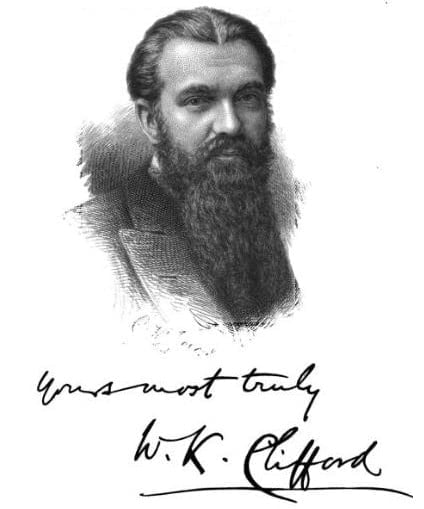When I was first invited to contribute to The Skeptic, I jumped at the chance. I have nothing but respect for everyone involved in the Merseyside Skeptics Society, and I hoped this column could be a space to discuss two things I care deeply about: skepticism and ethics. When I saw the mag’s new tag line, “reason with compassion”, I knew I was in the right place.
I believe that ethics and skepticism need each other. A good life is one that contains both in healthy balance. Thinking about how we ought to act, what we owe to others and ourselves, is crucial to our flourishing. Yet Ethics is amongst the most difficult areas of human exploration. Our ethical thinking is often hampered by cultural assumptions and unexamined heuristics, leading many to wonder if ethics is even real, or just something we made up to keep people in line. While I believe there are some objective ethical truths out there that humans can understand, I’m sympathetic to the concern that our knowledge of them is always mediated through our limited understanding, which is why it’s so critical to maintain a healthy skepticism towards our currently held ethical belief, just as we do with our currently held empirical beliefs. Anyone who doesn’t abide by fundamentalist ethics will see the value in approaching ethical claims with a skeptical eye, so it’s clear why ethics needs skepticism. It may be less clear why skepticism also needed ethics. Or, more precisely, why the skeptical mindset is fundamentally an ethical proposition.

Historically, skepticism has always been driven by ethical concerns. Ancient skeptics like Sextus Empiricus saw skepticism as the best way to maintain mental health and stability, what they called “ataraxia.” These ancient skeptics argued that humans should cultivate the ability to suspend judgment when they lacked sufficient evidence, rather than succumb to the human inclination to form a bunch of unjustified beliefs. Sextus’s skepticism was a form of virtue ethics, the view that humans should cultivate the ability to act well through practice in order to live a life of flourishing. The resulting virtue epistemology claims that we ought to get in the habit of believing in the right ways and for the right reasons, otherwise we will slip into vicious and harmful modes of believing. Holding only justified beliefs contributes substantially to a life of flourishing. Credulity, on the other hand, leads to false beliefs, and acting on false beliefs often causes suffering. Even if we don’t act on the false beliefs, the cognitive dissonance caused by the repeated collision of truth with error can produce unnecessary suffering when we are strongly invested in false beliefs. To avoid contributing to that suffering, we ought to remain skeptical and circumspect in our belief formation. Of course, skeptics throughout history have debated what counts as sufficient evidence, but that’s the hard work of epistemology. The key insight is that skepticism is an intellectual virtue.
Like Sextus before him, William Clifford defended a particularly extreme form of virtue epistemology that I find valuable for understanding the ethical foundation of skepticism. In his 1877 essay “The Ethics of Belief”, Clifford argues that “it is wrong always, everywhere, and for anyone to believe anything on insufficient evidence”. Clifford argues that it is even wrong to believe harmless beliefs based on insufficient evidence, because it can get one in the habit of credulity, which will lead to believing harmful beliefs down the line. Clifford presents the chilling example of a shady shipowner who convinces himself, based on little more than wishful thinking, that his aging vessel will safely make another trip across the ocean. When it fails to do so, the shipowner pockets his insurance money with no shred of guilt, fully-convinced that it was just unforeseeable bad luck. When we take seriously the potential harms of credulity, it gives us a strong justification for setting the standard for belief formation deep in skeptical territory. While Clifford’s view is criticized as far too epistemically demanding, it fully exposes skepticism’s ethical foundation. Belief impacts behavior, and false beliefs can cost people dearly.

Some have argued that skepticism is completely separable from any particular ethical commitments. They point out that skepticism only tells us how to act with regard to beliefs, it doesn’t mean that we have to adopt any particular ethical view, as long as our ethical beliefs are based on sufficient evidence. This thin account of skepticism, combined with some questionable metaethics, leads many skeptics to adopt either ethical nihilism or ethical subjectivism. Ethical nihilism is the view that there are no ethical truths and it doesn’t matter if we try to act ethically or not. You see this view most prevalently in the spaces where skepticism and internet troll communities overlap. Much of the rest of skepticism is dominated by subjectivism, the view that ethics is entirely determined by our beliefs about ethics. On this view, there are no objective ethical truths, but rather, we construct ethical theories that serve our needs. Subjectivism fits comfortably into the scientific materialist worldview that many skeptics understandably adopt, and provides some ground for defending claims about ethics. I plan to devote future columns to raising concerns about both of these views, while offering a robust, secular moral realism as an alternative. For now, let me say that I think there is insufficient justification for adopting either nihilism or subjectivism about ethics.
Other folks may challenge my lashing of skepticism to ethics on the grounds that skepticism is not, essentially, a means to any other end beyond the seeking of truth and the shunning of error. They claim that a skeptic’s motivation should rest entirely on the value of truth itself, separate from any further goods it can produce. I am sympathetic to the view that truth has some non-instrumental value. It does seem better to have a true belief than a false belief, even if no further good follows from having that true belief. However, it seems to me that the bulk of what makes the truth valuable is not intrinsic to the truth itself; it’s the power it gives us to reshape the world in a way that reduces suffering and promotes flourishing. Given the choice between knowing an infinite number of instrumentally-useless truths and knowing just one truth that could really help people, I think we ought to always choose the latter.
I’ve spent the bulk of this first article unpacking my understanding of skepticism, but I should also say a little about what I mean by ‘ethics’. First, I use ‘ethics’ and ‘morality’ interchangeably, as is the fashion in ethics these days. I define ethics as a broad field that includes considerations about good and bad, right and wrong, and what it means to live a life of flourishing. Those might seem like synonymous concepts, but I believe that the way they connect and come apart is surprisingly complex. Much good can come from understanding the peculiar relationships between these different ethical concepts, and the only way we get there is through skeptical interrogation of the universe, society, and our own ethical intuitions.

Skepticism has the power to bring about profound change in the world. Skepticism allows us to raise doubts about prevailing social norms, leading to the reform of unjust laws. Skepticism gives us a powerful tool for pushing back on harmful pseudoscientific claims that are being commodified at a frightening rate. Skepticism allows us to turn our compassionate reasoning into substantive social progress. We are the benefactors of a rich tradition of mitigating the suffering caused by natural human credulity, and when the time comes, we ought to hand that tradition off to our successors with the ethical foundations intact.
Aaron Rabinowitz is a lecturer in philosophy at Rutgers University, and host of the Embrace The Void podcast.



